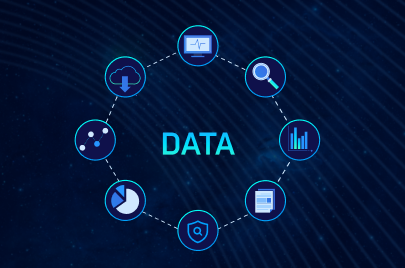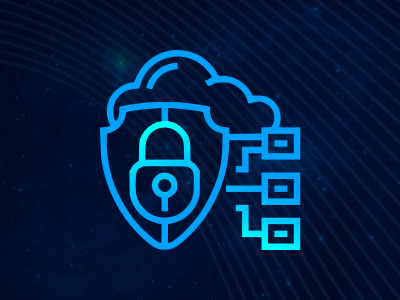Are proxies ethical?
11 October 2022
Today, we discuss the ethical usage of proxies and state tricks to collect web data properly.
Ethics is a philosophical concept. It stands for the moral rules of human behavior. Simply put, ethics is about the things we consider right or wrong. Ethical conduct helps to live in a community with no conflicts but with benefits. E.g. you buy residential and mobile proxies and get on top a passive income source.
Internet ethics manages our actions online. It follows general ideas of diligence, honesty, moderation, reliability, etc. High speed and wide bandwidth are positive characteristics of best datacenter proxies. But do proxy servers meet the requirements to be regarded as ethical?
Proxy as a tool
The core proxy feature is to substitute the original IP address with its own. That aspect seems wrong at the first sight to hide a personality behind the mask. Proxy mobile networks, as residential and datacenter also, become anonymous to the most third-party subnets.
Proxy anonymity is beneficial. Compare it to the “secret shopper” technique popular among offline retailers. The checks are held anonymously. But the head office knows who “mystery agents” are. It accumulates information provided from every spot. Then management analyzes it and gives recommendations on how to evaluate customer experience.
That is what the best datacenter and other proxies do. Obtaining web data is ethical on its own. It is all about the objectives and methods used by buyers of residential and mobile proxies.
Everyone uses proxies
The most popular proxy purpose is data extraction. We created a solid infrastructure for these aims. And even offer a paid proxy free trial. The Internet as we know it would be a completely different place without intermediary devices. They are crucial for:
- Search Engines. Google, Bing, Baidu, etc. run automated data gainers every day. They get a perception about the content of pages. And therefore can answer your questions printed in the box.
- Web Archives. They buy SOCKS and HTTP proxies. Keepers of the whole Internet backups resort to data harvesting ecosystems. Otherwise tracking all updates will be impossible.
- Social Networks. Mobile network proxies can cope with big data of user behavior. Ads and features are aimed at particular users according to their preferences.
- Job Search Sites. LinkedIn, AngelList, FlexJobs, etc. gain information about recruiters and job seekers to match it with market demands.
- Online retailers. They need to monitor prices, trends, and innovations online. Trusted proxy websites provide the whole package of services from gathering and processing information to presenting the results. Without SOCKS proxies they buy the development of any business would be impossible
- App Developers and QA engineers. They require mobile and residential network proxies to look at software (site) through the eyes of users. Data management platforms such as Astro help with it.
Ethical web data obtaining
The main rule is to search and collect information in the public domain only. Respect for private data is fundamental. Attempts to access protected data can be even treated as a criminal offense.
Consider two things preparing for information search. Your work should not violate the User Agreement or Page Copyright. Determine the scope of work and choose consequently the proxy type and service. Get paid proxies for a free trial if possible.
The KYC (Know Your Client) policy is developing rapidly. Started as a measure against money laundering, KYC is now the essential indicator of trustworthy companies. We ask our clients to verify the identity before granting them full access to the best datacenter proxies.
Tricks to gather data ethically
Gaining access to public information online is legal. The ethical character implies observing the most rules from following list:
- Minimize the impact your work has on target pages. Set-up filters to visit only subsections with information needed. You’ll also spare your traffic and spend less time on structuring info assembled.
- Distribute the page load. Buy more SOCKS5 and HTTPS proxies to disperse the inbound requests. Residential and 4G rotating proxies are preferable to process smoothly.
- Do not obtain paywalled materials behind a lock. It’s meaningful to the owner, so respect privacy.
- Choose an unpopular time when the page has the least number of visitors. It will accelerate your work and reduce the effect on pages’ performance
- Control the number of requests per second for every proxy. Use paid proxy free trial to clarify the work’s scope.
- Check the ‘robots.txt’ file. Stick to the rules from it, avoid using software on the restricted pages.
- Avoid free proxies. They are inefficient, no one knows where they come from. Buy residential IPs from trusted service providers.
- Configure the requests to go via public API if possible.
- Remove all the private identifiers on completion, if you’ve collected any. Do not let the data leakage happen.
Astro is enterprise-focused infrastructure based on transparency. We don’t ask clients strictly if their business case is legitimate. Or does it meet our ethical standards?
We do not set a whitelist of pages the user is allowed to visit or work with. But we follow the transparency rules and control ongoing connections on two stages. It is AI-generated and manual controlled. You can buy residential and mobile proxies freely. But before using our data acquiring ecosystem at a full scale, you’ll need to pass ID verification. That’s what ethical usage of our platform is about.



